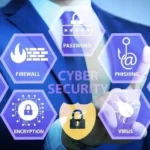As enterprises digitize operations, printers and copiers handle increasingly sensitive information. However, these network-connected devices also introduce vulnerabilities that malicious actors can exploit to breach infrastructure. Consequently, advanced security capabilities in enterprise-grade printers are now imperative, especially across dense corporate hubs like Los Angeles, where breaches bear steep reputational and financial liabilities.
This article spotlights built-in printer security safeguarding LA enterprises through encryption, access control, and integration with defensive IT systems. Real-world examples showcase the robust protections offered by modern appliances versus outdated hardware. This article will guide you in selecting secure printers that suit your risk profile.
Risks Associated with Printers
Legacy printers lack native security tools, transmitting documents unencrypted over networks. Hackers can intercept sensitive data or alter mission-critical communications. Connectivity gaps also lead to compliance issues.
LA’s position as a prime technology hub concentrates on high-value targets, prompting hackers worldwide to scout under-protected networks as data breach entry points. So printers handling everything from product designs to private health records require LA enterprise-grade printers and copiers with multilayered protections.
Security Features in Enterprise-grade Printers
Modern multifunction printers and photocopiers pack extensive native protections, including:
Encryption and Secure Printing: Documents are encrypted both at rest internally and when transmitted over networks to prevent interceptions. Secure print queues also contain unauthorized access to retrieved jobs.
Access Control and Authentication: Integrated features like biometrics, PINs, or RFID badge readers restrict printer usage. Active Directory synchronization further enhances access policies and auditing.
Firmware and Software Updates: Always-updated firmware guarantees patches against emerging vulnerabilities.
Integration with Network Security – Built-in tools like IPsec, SNMPv3, SFTP communications, and intrusion prevention integrate with defensive IT infrastructure.
Case Studies
A Los Angeles digital media agency suffered a breach of client prototypes and unreleased marketing assets after an employee unknowingly shared printer access credentials with an external “tech support scammer,” – allowing the threat actor network infiltration. Upgrading to enterprise-grade Multifunction Printers from CDS Inc., enforced by biometric authentication and data encryption, sealed this glaring security gap without workflow disruption.
Similarly, an LA-based nonprofit organization dependent on print mail campaigns experienced repeated exploits through their unprotected office printers being compromised to distribute malicious spam – tarnishing hard-won reputations. Deploying managed print services with advanced threat detection capabilities from CDS Inc. helped permanently prevent recurrence while achieving operational visibility.
Benefits of Advanced Printer Security
Robust printer protections power wide-ranging dividends:
Data Protection and Confidentiality: Securing data endpoints enhances compliance with privacy regulations like GDPR and CCPA that mandate reasonable controls.
Compliance: Documenting printer security postures through managed services assists in demonstrating compliance controls for ISO 27001, HIPAA, etc.
Business Continuity: With minimized disruptions from security incidents, enterprises avoid downtime, recovery, and reputational damage costs.
Choosing the Right Enterprise-grade Printers
Identify must-have native security specifications during procurement itself, considering risk factors across data sensitivity, employee behaviors, and compliance scope. Ideal managed print services like CDS Inc. also undertake printer, monitoring, and complete management.
Conclusion
LA enterprises handle immense amounts of sensitive data daily, prioritizing printer security against surging cyber threats. Modern enterprise-grade printers integrate robust features tackling vulnerabilities out-of-the-box to protect institutional knowledge fully. Partnering with reputable suppliers like CDS, Inc., purpose-built for the LA landscape, paves an assured data protection pathway without impeding workflows.







